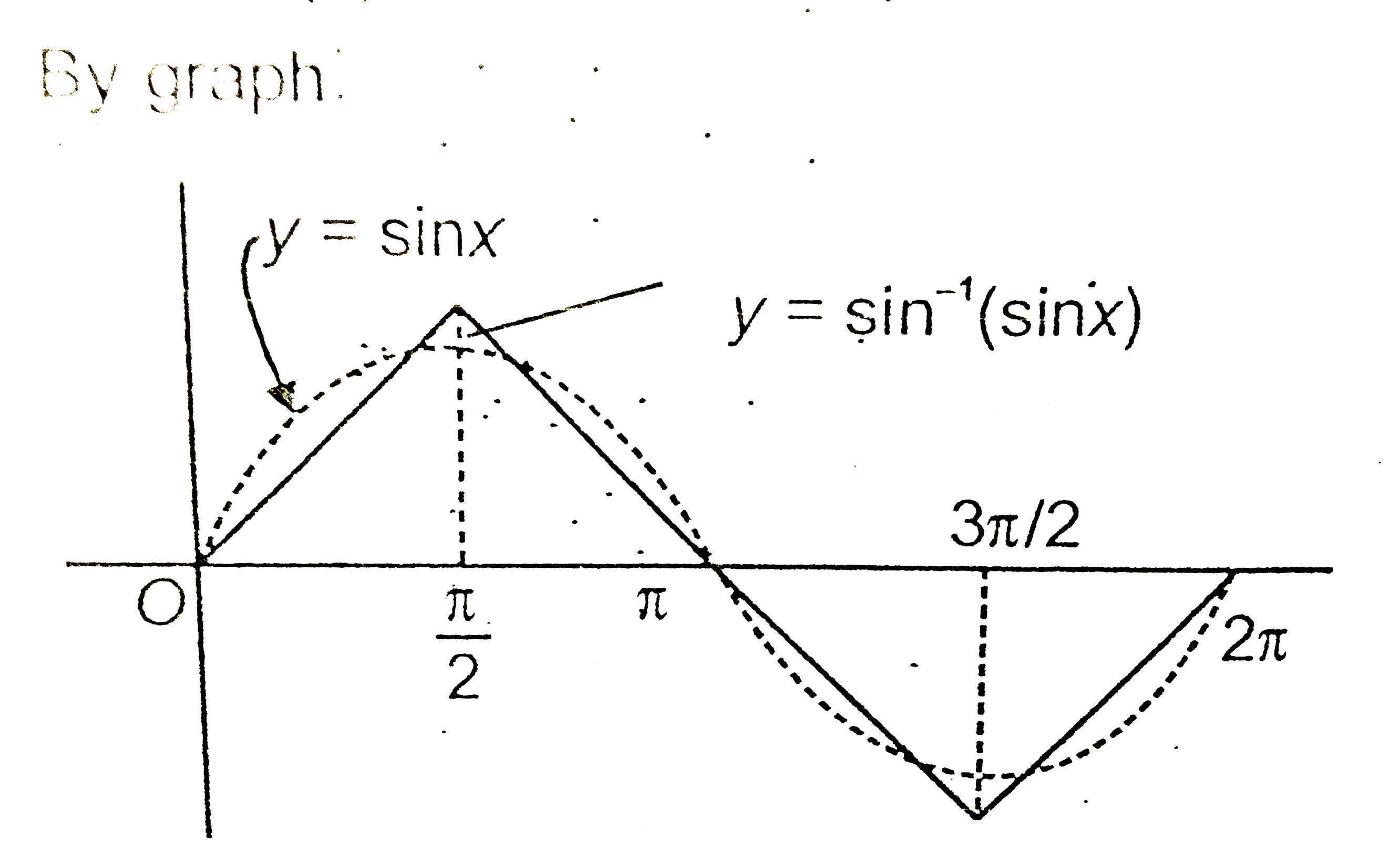Solutions of sin−1(sinx)=sinx are if x∈(0,2π)
A
4 real roots
B
2 positive real roots
C
2 negative real roots
D
5 real roots
Video Solution
Text Solution
The correct Answer is:D
By graph

Option 4 is correct.
|
Updated on:21/07/2023
Topper's Solved these Questions
- BOOK - AAKASH INSTITUTECHAPTER - INVERSE TRIGONOMETRIC FUNCTIONSEXERCISE - TRY YOURSELF21videos
INVERSE TRIGONOMETRIC FUNCTIONS
- BOOK - AAKASH INSTITUTECHAPTER - INVERSE TRIGONOMETRIC FUNCTIONSEXERCISE - ASSIGNMENT (SECTION - A)(OBJECTIVE TYPE QUESTIONS (ONE OPTION IS CORRECT))45videos
INVERSE TRIGONOMETRIC FUNCTIONS
- BOOK - AAKASH INSTITUTECHAPTER - INTEGRALSEXERCISE - Try yourself50videos
INTEGRALS
- BOOK - AAKASH INSTITUTECHAPTER - LIMITS AND DERIVATIVES EXERCISE - Section - j3videos
LIMITS AND DERIVATIVES
Similar Questions
Knowledge Check
- Question 1 - Select One
Total number of solutions of sin4x+cos4x=sinx⋅cosx in [0,2π] is equal to
A2B4C6D8 - Question 2 - Select One
General solution of sin2x+sinx=2 is
Anπ2+(−1)nπ4,n∈ZBnπ2+(−1)nπ2,n∈ZC(nπ)+(−1)n3π2,n∈ZDnπ+(−1)nπ2,n∈Z - Question 3 - Select One
The value of sin−1(cos(cosx)+sin−1(sinx))) where x∈(π2,π) is equal to
A−π/2Bπ/2C−πDπ
If the maximum value of x which satisfies the inequality sin−1(sinx)≥cos−1(sinx) for x∈π2,2π is λ, then 2λ3 is equal to (take π=3.14)
View SolutionSolve cos−1(cosx)>sin−1(sinx),x∈[0,2π]
View SolutionThe number of solution of sinx+sin3x+sin5x=0 in the interval [π2,3π2] is
View SolutionThe solution of sinx+sin5x=sin3x in (0,π2)
View SolutionNumber of solution of sinxcosx−3cosx+4sinx−13>0 in [0,2π] is equal to
View Solution

